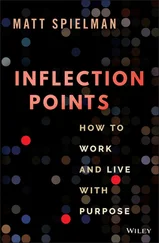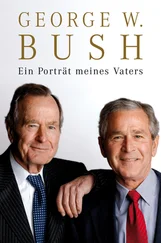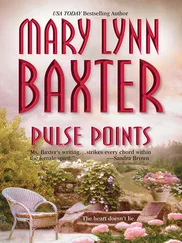We considered a variety of other names for secretary of defense, including Dan Coats, a fine senator from Indiana. Then Condi threw out an interesting idea: How about Don Rumsfeld?
Don had been secretary of defense twenty-five years earlier, during the Ford administration. He had since served on a number of influential national security commissions. I had been considering Rumsfeld for CIA, not Defense. When I interviewed him, Don laid out a captivating vision for transforming the Defense Department. He talked about making our forces lighter, more agile, and more rapidly deployable. And he was a strong proponent of a missile defense system to protect against rogue states like North Korea and Iran.
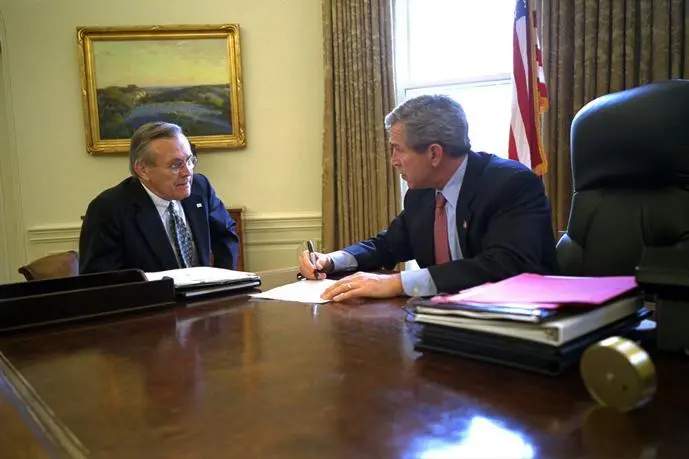
With Don Rumsfeld. White House/Eric Draper
Rumsfeld impressed me. He was knowledgeable, articulate, and confident. As a former secretary of defense, he had the strength and experience to bring major changes to the Pentagon. He would run the bureaucracy, not let it run him. Dick Cheney, who had been Don’s deputy when he was chief of staff in the Ford White House, recommended him strongly.
There was one awkward issue. Some believed that Don had used his influence to persuade President Ford to appoint Dad to run the CIA in 1975 as a way of taking him out of contention for the vice presidency. I had no way of knowing if this was true. But whatever disagreements he and Dad might have had twenty-five years earlier did not concern me, so long as Don could do the job. Don went on to become both the youngest and oldest person to serve as secretary of defense.
With Rumsfeld going to the Pentagon, I no longer had a leading candidate for the CIA. I had great respect for the Agency as a result of Dad’s time there. I had been receiving intelligence briefings as president-elect for a few weeks when I met the sitting director, George Tenet. He was the opposite of the stereotypical CIA director you read about in spy novels—the bow-tied, Ivy League, elite type. Tenet was a blue-collar guy, the son of Greek immigrants from New York City. He spoke bluntly, often colorfully, and obviously cared deeply about the Agency.
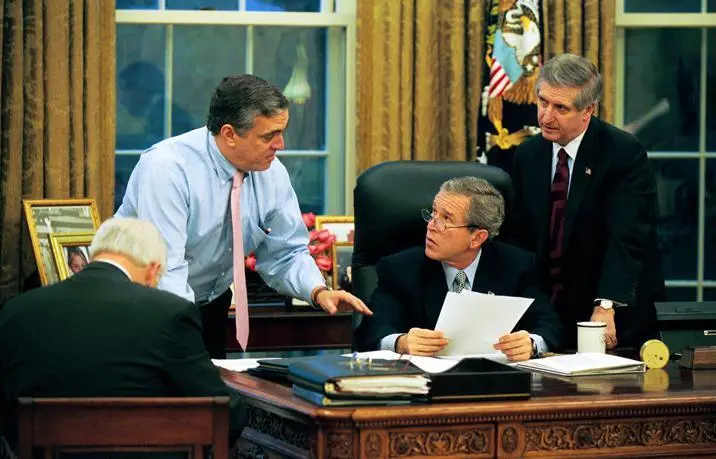
With Dick Cheney ( seated ), George Tenet ( left ), and Andy Card. White House/Eric Draper
Retaining Bill Clinton’s CIA director would send a message of continuity and show that I considered the Agency beyond the reach of politics. I asked Dad to sound out some of his CIA contacts. He told me Tenet was highly respected within the ranks. As George and I got to know each other, I decided to stop looking for a replacement. The cigar-chomping, Greek-to-the-core director agreed to stay.

For the most part, the national security team functioned smoothly in the early years of the administration. The economic team did not. The problem was partly the result of a personnel mismatch. As president, I had three key economic advisers: the National Economic Council director, the Council of Economic Advisers chairman, and the secretary of the treasury. I chose Larry Lindsey, an accomplished economist and senior adviser on my campaign, to lead the NEC. Glenn Hubbard, another thoughtful economist, chaired the CEA. They did a fine job designing the tax cuts I had proposed during the campaign. The legislation passed with a strong bipartisan majority.
My treasury secretary did not share the same enthusiasm for tax cuts. Paul O’Neill had come recommended by Dick, Clay Johnson, and others on the team. His strong résumé included success at the Office of Management and Budget and as the CEO of Alcoa, a Fortune 100 company. I felt that his practical business experience would command respect on Wall Street and Capitol Hill.
Unfortunately, things started going wrong from the start. Paul belittled the tax cuts, which of course got back to me. He and I met regularly, but never clicked. He didn’t gain my confidence, nor did he build credibility with the financial community, Congress, or his colleagues in the administration. I was hoping for a strong treasury secretary—a leader like Jim Baker or Bob Rubin—who would advance my economic policies in speeches and on TV. By late 2002, nearly two million Americans had lost jobs in the past year, and Paul wasn’t conveying our determination to get them back to work. Instead, he used his meetings in the Oval Office to talk about tangential topics, like his plan to improve workplace safety at the U.S. Mint.
I did not want to repeat Dad’s mistake of 1992, when he was perceived as disengaged on the economy. I decided that a shakeup of the economic team was the best way to signal that my administration was serious about confronting the slowdown affecting everyday Americans. For the change to be credible, it had to be sweeping. Larry Lindsey had done a fine job, and it was not easy to ask him to move on. He understood the need for a fresh start and handled the news professionally. Paul did not take it as well. I was disappointed that he departed on bad terms, but glad I made the decision when I did.

The next summer, I received a surprising invitation to make another change. Every week, Dick Cheney and I ate lunch together, just the two of us. Jimmy Carter and Walter Mondale had started the tradition, and it had continued ever since. I liked the relaxed setting and the chance to hear whatever Dick had on his mind. While I had similar meetings with other top aides, Dick was the only one on a regular schedule. I didn’t look at the vice president as another senior adviser. He had put his name on the ballot and gotten elected. I wanted him to be comfortable with all the issues on my desk. After all, it could become his at any moment.
Dick and I ate in a small dining room off the Oval Office. The room’s decorations included a bronze bull sculpture given to me by some East Texas friends and a landscape painting that reminded me of the Maine coast. The dominant piece of art in the room was a portrait of John Quincy Adams, the only other son of a president to hold the office. I hung it as an inside joke with Dad. One day early in my presidency, he was teasing me about the special kinship between W and Q. I wanted him to have to look Q in the face the next time he felt the urge to needle. I had read a fair amount about Quincy. I admired his abolitionist principles, although I wasn’t crazy about his campaign to exclude Texas from the Union. Nevertheless, I kept the portrait up for the rest of my time in the White House.
In mid-2003, Dick opened one of our weekly lunches with a startling comment. He said, “Mr. President, I want you to know that you should feel free to run for reelection with someone else. No hard feelings.” I asked about his health. He said his heart was fine. He just thought I should have the option to refashion the ticket. His offer impressed me. It was so atypical in power-hungry Washington. It confirmed the reasons I’d picked Dick in the first place.
I did consider his offer. I talked to Andy, Karl, and a few others about the possibility of asking Bill Frist, the impressive Tennessee senator who had become majority leader, to run with me instead. We all expected 2004 to bring another close election. While Dick helped with important parts of our base, he had become a lightning rod for criticism from the media and the left. He was seen as dark and heartless—the Darth Vader of the administration. Dick didn’t care much about his image—which I liked—but that allowed the caricatures to stick. One myth was that Dick was actually running the White House. Everyone inside the building, including the vice president, knew that was not true. But the impression was out there. Accepting Dick’s offer would be one way to demonstrate that I was in charge.
Читать дальше









